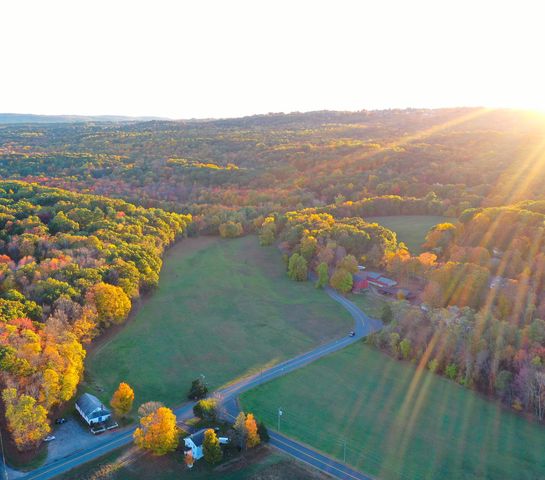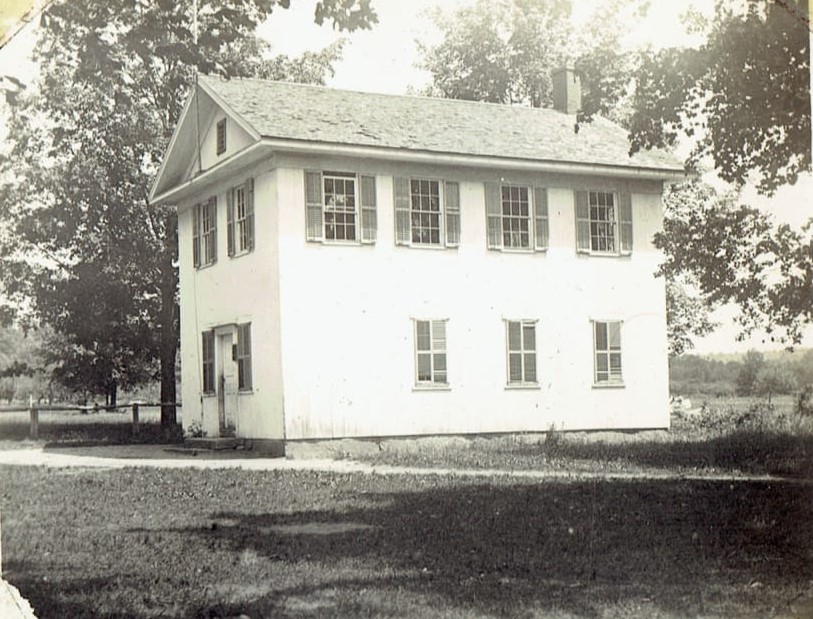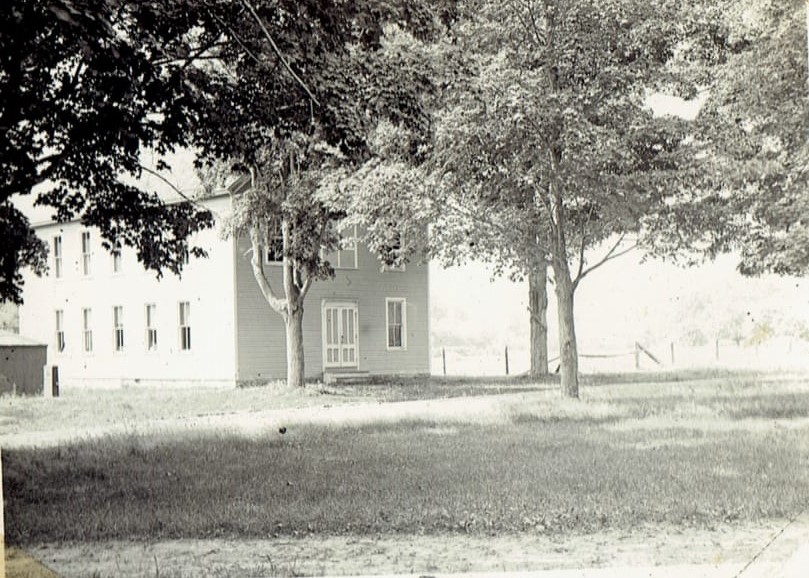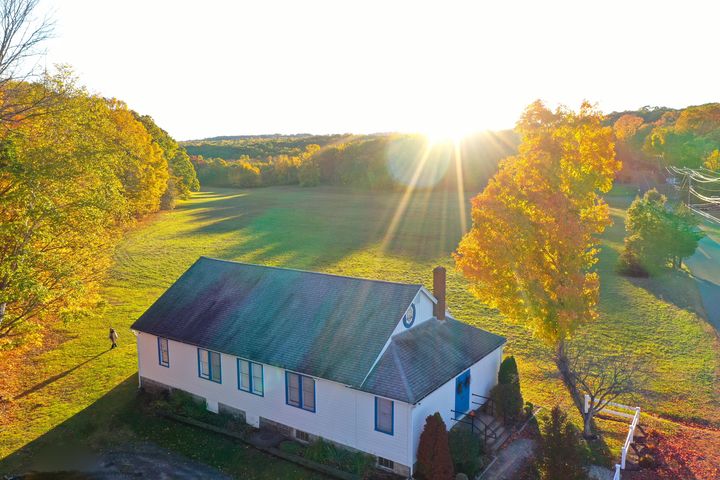
Photo credit: Sparrow Drone Aerial Services
The oldest of Burlington’s nine districts, Whigville is located in the south central section of town. It is where visitors will find one of the most unusual Main Streets in America; there are no businesses, no town buildings, not even a post office on it. Instead, people coming upon Main Street discover a classic southern New England setting of hay fields surrounding an ancient schoolhouse and a grange building. The length of Main Street is dotted with 18th and 19th century homes, a 60+ acre farm, barns made from American Chestnut, and additional open spaces with farm implements on display.
After its settlement in the mid-1700s, the area first became known as Poverty Hollow, a place where the inhabitants endured a meager existence as they carved a village out of the wilderness. Once settled, however, they became increasingly engaged with the world beyond.
In 1844, all but one family in Poverty Hollow attended a political rally in Hartford for the Whig Party presidential candidate Henry Clay. Thereafter the section of town was known as Whigville.
They were so-called “Conscious Whigs” because they were against slavery, as opposed to “Cotton Whigs” who supported the enslavement of human beings. Two early residents of the area, Amos and Jenny Freeman, were African-Americans who lived freely among their neighbors. Today, Freeman Hill Brook running through Whigville is named in their honor.
The Whigville Schoolhouse was built in 1853 and became a community center of sorts where religious services were held, the Whigville Debating Society met, and other events took place. The building remains standing today as a private home and a reminder of the past.

Photo credit: Funk Family Archive
In 1894, community activities shifted to the newly dedicated Grange, a fraternal organization designed to support and bring “community” to remotely located agricultural families. The grange building today has become a rallying point for Whigville residents who are working to preserve their agricultural heritage for future generations.

Photo credit: Funk Family Archive
Whigville’s open spaces and living history set it apart in the 21st century as these landscapes become increasingly scarce.

Photo credit: Sparrow Drone Aerial Services
